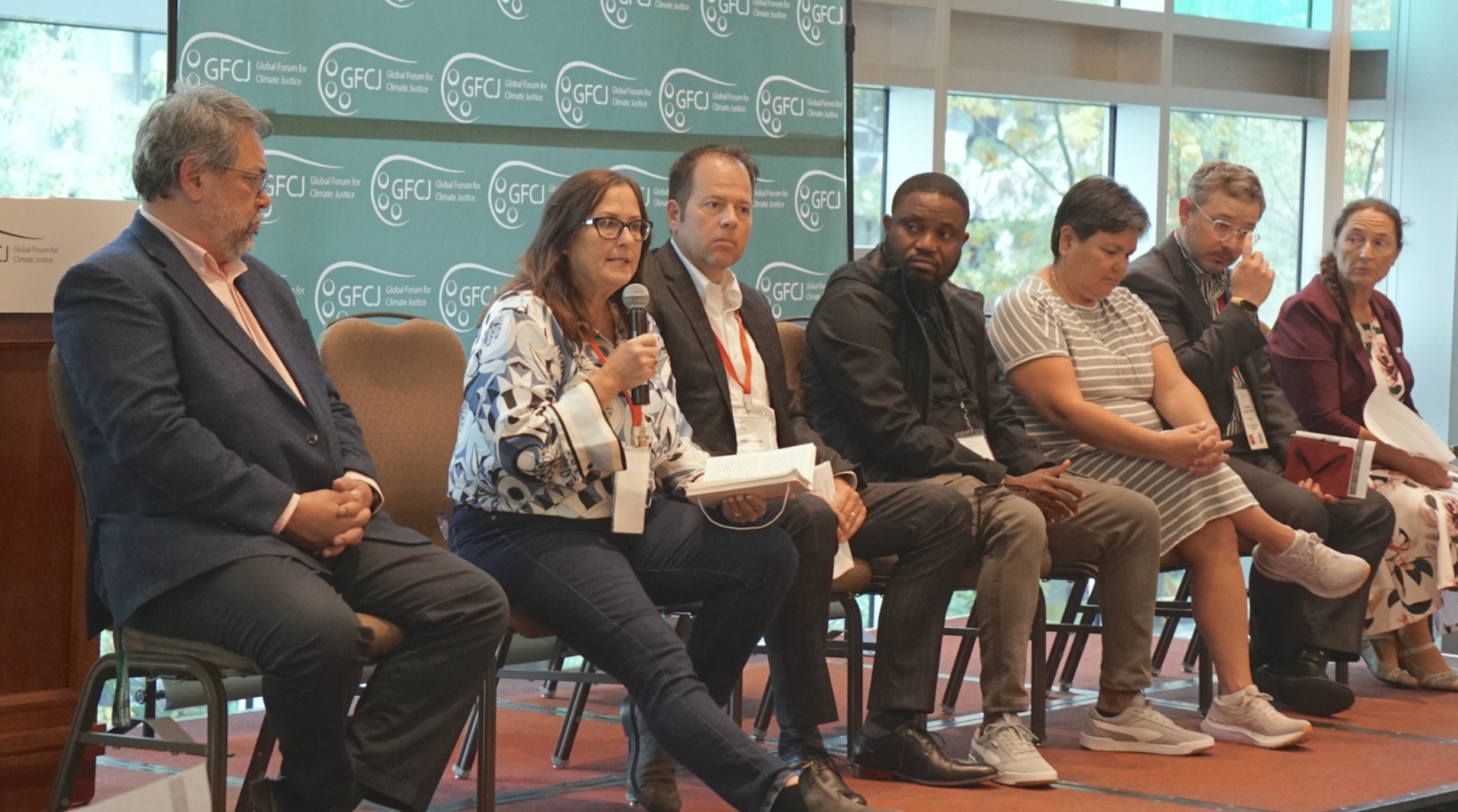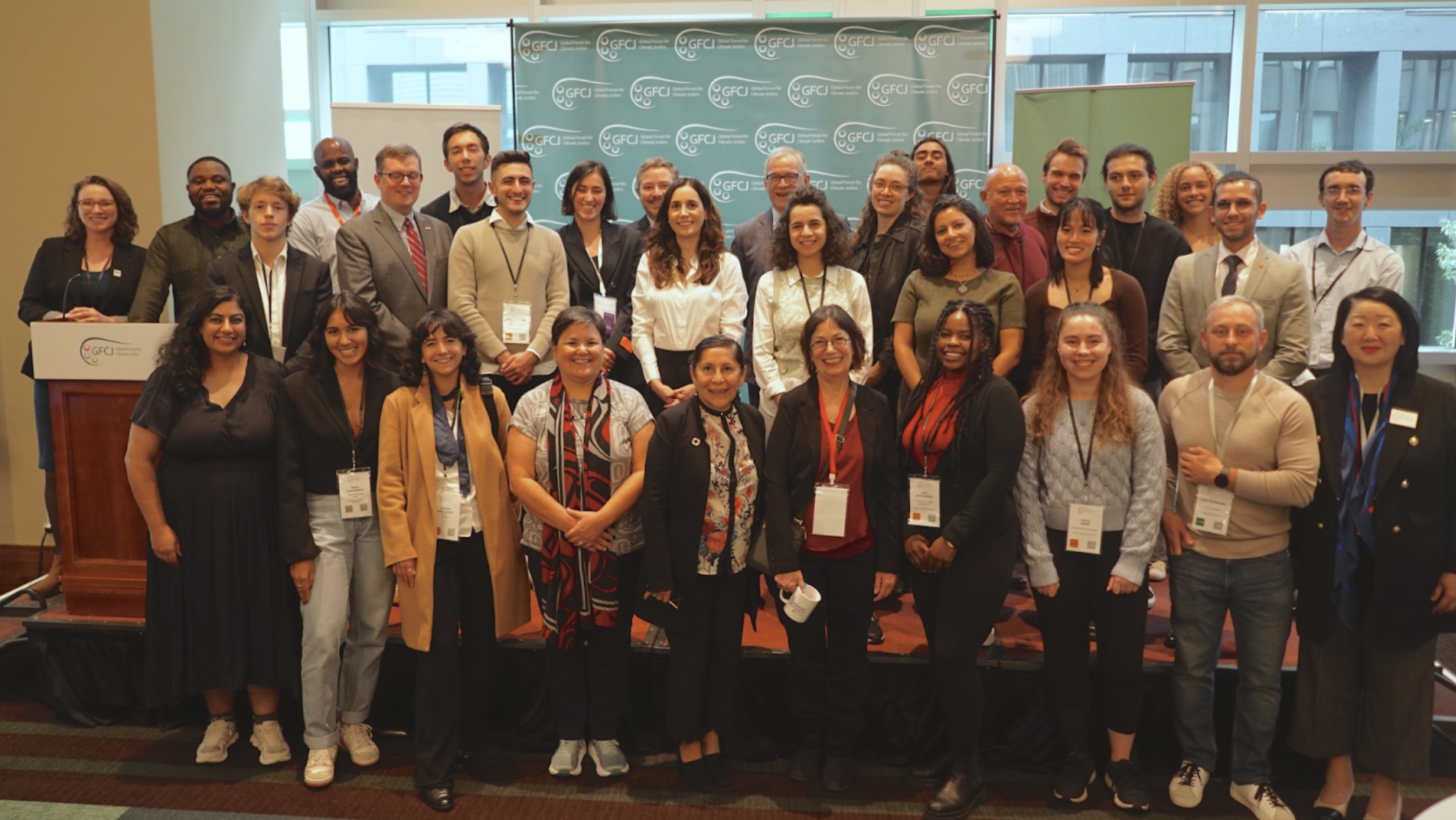The International Forum for Climate Justice
From October 11 to 13, 2023 Alder University hosted the first Global Forum for Climate Justice. This conference had international attendees, ranging from entrepreneurs, to politicians, to university students. The attendees were diverse in cultural backgrounds as well as opinions surrounding the topics at hand. We discussed the shared responsibilities of climate justice and how each person could make a difference. It was very interesting to hear what people had to say, based on their backgrounds.
International Panel Q&A
There was a consensus that the government is key in making a change. They need to implement better policies that target businesses which directly/indirectly degrade the environment and its species. However, some government representatives explained that the people need to speak up about what they want, as the government has a plethora of issues on their plate. I decided to jump in and explain that, in one way or another, most issues are interconnected with climate change. Extreme climate events exacerbate the housing crisis which worsens the homeless crisis which affects the healthcare system. The government has significant investments in all of these streams, but they fail to realize that the environment we live in is intrinsically connected with all aspects of our lives.
Knowing this, some people still argue that it’s not worth it from an economic point of view. To that, Senator Rosa (from Mexico, now representing Quebec) asks “Well how much does climate change cost us if we do nothing?” The Canadian Climate Institute indicated that from 2015-2025 the national GDP (lost) $25 billion as a result of compounding climate shocks (i.e. storms, floods, fires etc.). Meaning, if climate change were to have stabilised in 2015, we would be $25 billion richer. While there is uncertainty in the investment, it is clear that it's currently costing us a fortune. And experts have come out and said that “for every dollar invested in climate change mitigation we should see a $10-30 return though a triple dividend of resilience analysis.”
Although halting anthropogenic climate change can sound daunting, its solutions are found through the creativity, innovation, and connection with nature that is rooted in humanity. Sustainability is the overarching term that encompasses these solutions - with a goal of sustaining the world we’ve created for future generations. It sheds a positive light on the situation and asks how can we improve our practices to make them more efficient and eco-friendly?
When transitioning to a more sustainable future, we do have to be cognizant of environmental racism, along with the fact that communities and countries are disproportionately affected by climate change. Many communities are already at a disadvantage due to past discriminatory actions. So, as we make these green transitions, there needs to be a strong emphasis on how to make them equitable. Steven from the anti-racism coalition brought up another good point that is often overlooked. Colonization has had dire long-term consequences on a plethora of countries worldwide. These countries are still in the process of recovering and may not have the ability to allocate resources towards climate change mitigation. That’s why international efforts must also be made equitable.
Everyone at the conference captured after the last event.
At the end of the conference, we asked ourselves, what is our ultimate goal really? To cap international greenhouse gas emissions? To make a complete transition to renewable energy? Or should it be to foster a better connection with the natural world? Chief Leanne Joe brought up this point and it shocked me. I had honestly never thought of it from that perspective and neither had many of my peers. But in talking to her more, that is a common Indigenous teaching, posing the question- how can we live in harmony with nature, and give it the respect it deserves?
This also leads us to think about our goals in life. Is your goal to make as much money as possible? Spread love to the people you meet? Or connect with the world around you? Scientists have never found that money buys happiness, but they have found that close relationships and a connection with nature do.
Steven from the anti-racism coalition says that “people become more alive when they contribute to society” which happens by making meaningful connections with people. Engaging with issues you feel passionate about and working towards a goal that will benefit you and your community can give your life purpose. For me it’s building an equitable sustainable future. What is it for you?

